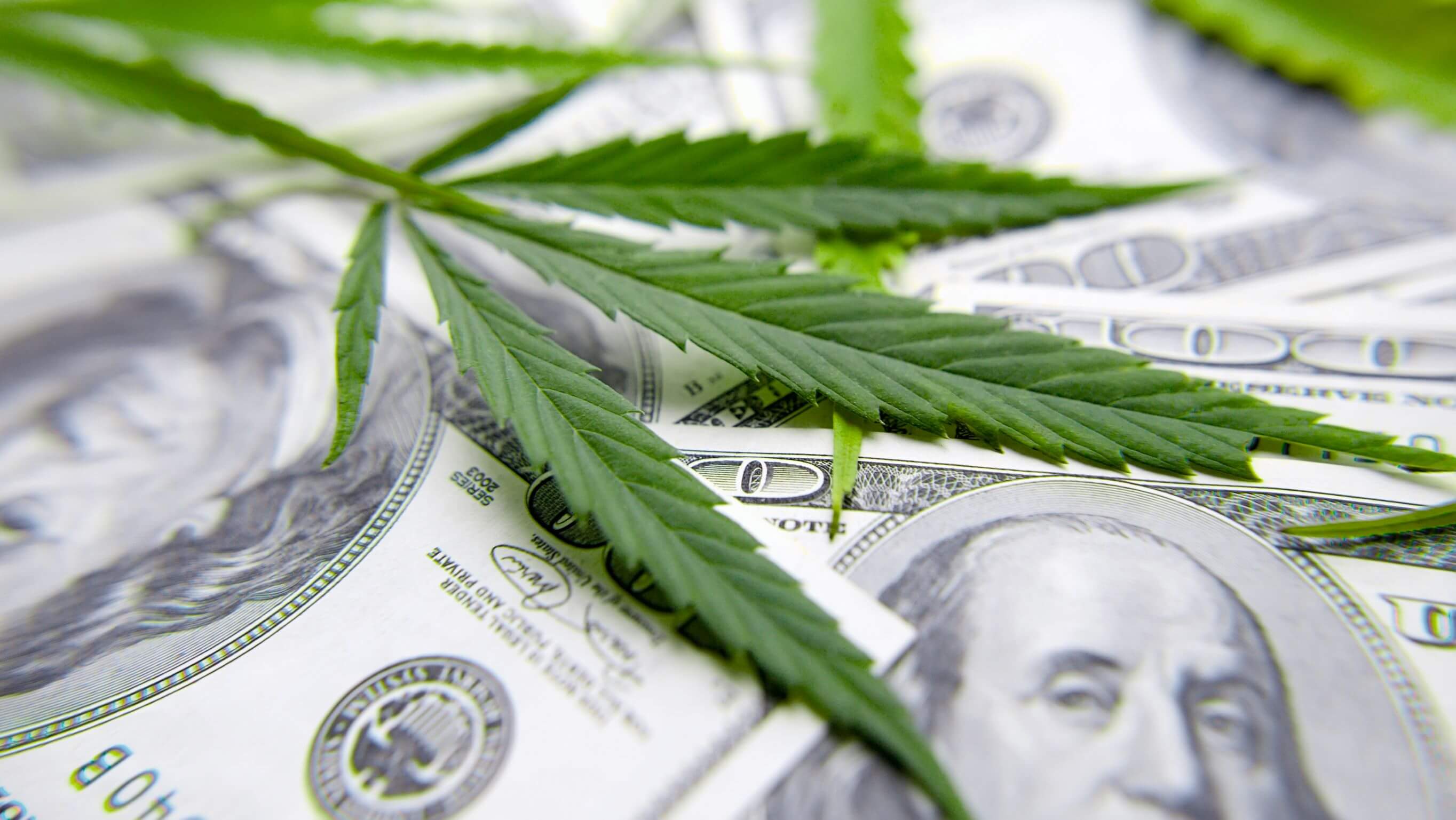Resources
Colorado state tax revenue from the legal cannabis industry surpassed $2 billion in January and the state has collected more than $88.7 million in fees.
In addition to state and local taxes and fees, cannabis businesses have an effective federal tax rate of about 70% – compared to about 26% for other businesses.
Did you know Colorado legal cannabis dispensary owners are unable to deduct normal business expenses like payroll and rent from their federal income taxes?
Marijuana has contributed over $320 Million dollars to Building Excellent Schools Today (B.E.S.T.), making up about 25% of the program's entire budget.
In FY 21-22 alone, nearly $15.3 million in state cannabis dollars went to state Affordable Housing Grant and Loans.
The Marijuana Tax Cash Fund collected $188.8 Million in FY 2021-22 alone.
In FY 21-22 alone, nearly $15 million in cannabis dollars went to the School Health Professional Grant program.
More than $15 million in cannabis dollars went to substance abuse treatment in FY 21-22.
More than $1.6 million cannabis dollars went to the Tony Grampsas Youth Services Program in FY 21-22.
Voters in 59 of 64 Colorado counties voted no on Proposition 119 sending a clear message against raising taxes on cannabis consumers.
Unlike other legalized substances, the marijuana industry has a 97% compliance rate for unauthorized sales.
Unlike alcohol, research has proven you can only get “so high.” Cannabinoid receptors in your brain eventually prevent the body from getting further intoxicated.
Did you know? Since legalization in 2005, teen use in Colorado has remained flat and is below the national average.
According to a recent poll by the Pew Research Center, more than 90% of Americans think cannabis use should be legal.
Did you know? MIG represents more than 400 cannabis business licenses across the state.
A 2021 study found that medical cannabis use was associated with clinical improvements in pain, function, and quality of life with reductions in prescription drug use.
Founded in 2010, MIG is the oldest and largest trade association for licensed cannabis businesses.
Colorado’s marijuana model has become the example for all other regulated cannabis states, and MIG works directly with policy makers to ensure that Colorado’s program is fair, tightly regulated, safe, and successful.
Safe Sales: Every marijuana sale in CO takes place on camera and requires multiple ID checks.
All regulated marijuana in Colorado is tracked from “seed to sale,” with oversight from the Marijuana Enforcement Division.
Established in 2010, MIG has led legislation for child resistant packaging, customer safety resources, and purchase restrictions for 18-20 year olds.
Marijuana is taxed at both state and local levels. This year Aurora built a new $34 Million dollar rec center, fully funded by local marijuana taxes.
The marijuana industry suffers from unfair Federal tax rules, which means that MIG members’ effective tax rates are around 71%.
A 2019 study showed that crime does not increase with legalization.
Conditions for medical marijuana
Cancer - Glaucoma - HIV or AIDS - Cachexia - Persistent muscle spasms - Seizures - Severe nausea - Any condition for which a physician could prescribe an opioid - Autism Spectrum Disorder - Severe pain - PTSD
Most marijuana businesses have access to banks, but because marijuana is still federally illegal, businesses are unable to access merchant processing services such as VISA or Mastercard.
Consuming higher potency marijuana does not lead to higher levels of impairment.
-- Journal of the American Medical Association (JAMA) 2020
71% of Colorado voters favor marijuana legalization. This has increased 10 points in the last four years alone.
Lawmakers Pass Bipartisan Bill to Regulate Hemp Intoxicants
MIG Press Release
FOR IMMEDIATE RELEASE
DATE: May 12, 2022
CONTACT: Madeleine Schmidt
Lawmakers Pass Bipartisan Bill to Regulate Hemp Intoxicants
MIG Celebrates the Passage of SB 205 to Keep Hemp Intoxicants Out of the Hands of Kids
DENVER – A bill supported by the Marijuana Industry Group and passed by Colorado lawmakers yesterday addresses the unregulated sale of intoxicating hemp products to protect youth and enhance public safety.
Senate Bill 205, which was sponsored by State Representatives Alex Valdez (D-Denver) and Kevin Van Winkle (R-Highlands Ranch) and Senators Steve Fenberg (D-Boulder) and Chris Holbert (R-Douglas County), received final approval from the House of Representatives yesterday. It was passed unanimously by the Senate last week.
The bill concerns a legal loophole being exploited by some bad actors allowing them to use unregulated manufacturing techniques to concentrate the low level of THC found in hemp into potent intoxicating products containing high levels of THC. These hemp-derived Delta-8 THC products can even have the same THC levels or higher than those sold in dispensaries, but are available for sale online with only a check-box for someone to attest that they are over the age of 18. That means that anyone, including teenagers, can go online today and order intoxicating THC hemp products to be delivered to their doorstep; no ID check, not even a signature is required.
SB 205 allows the Colorado Department of Public Health and Environment to regulate hemp intoxicants and creates a task force to study hemp intoxicants and make legislative recommendations. The task force will be comprised of key officials from the Attorney General’s office, the state’s departments of agriculture, marijuana enforcement, and public health, in addition to leaders from the hemp and marijuana industries.
“At the Marijuana Industry Group, public safety and protecting kids have always been our top priority, and we’re proud of our industry’s 95-97% compliance rate when it comes to keeping marijuana products out of the hands of young people,” said Truman Bradley, Executive Director of the MIG. “We’re proud to continue our successful track record of preventing youth access by supporting SB 205, which will protect the public from the unregulated sale of intoxicating hemp products. Thank you, Colorado lawmakers, for supporting this critical bill to keep our communities healthy and safe.”
The Food and Drug Administration (FDA) has raised alarm about the growing popularity of hemp intoxicants being sold in stores and online, emphasizing that these are unregulated psychoactive substances that may pose health risks to consumers. In particular, these products have packaging that might appeal to children and aren’t packaged safely to ensure kids can’t consume the products. On May 4, the FDA issued a warning letter to 5 companies selling hemp-derived Delta-8 THC and illegally marketing the products as unapproved treatments for various medical conditions and other therapeutic uses.
The bill now heads to Gov. Jared Polis’ desk for his signature.
###
About MIG: MIG was founded in 2010 by cannabis business owners and supporters who wanted to help craft Colorado’s earliest medical marijuana regulatory framework. MIG is the oldest and largest trade association for licensed cannabis businesses. Comprised of approximately 500 licensed businesses, MIG has strong representation and connections across the state. MIG advocates on behalf of the rapidly evolving needs of the regulated marijuana industry in Colorado with a reputation for innovative policy making and getting results for the state’s cannabis community.








